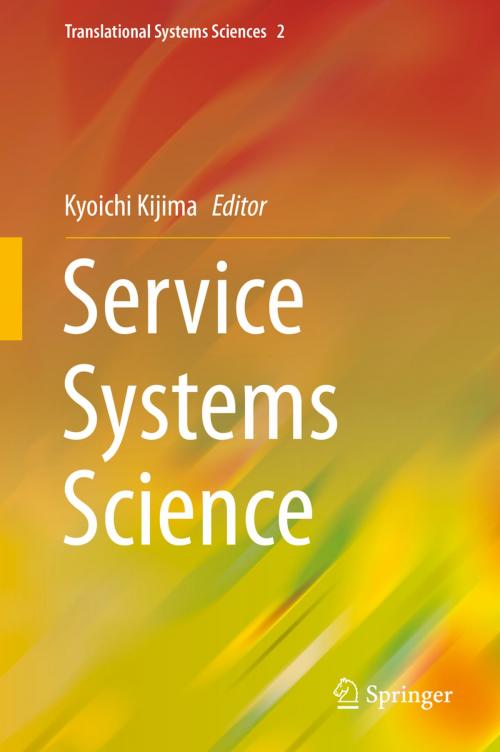Service Systems Science
Business & Finance, Management & Leadership, Management Science, Nonfiction, Social & Cultural Studies, Social Science| Author: | ISBN: | 9784431542674 | |
| Publisher: | Springer Japan | Publication: | November 13, 2014 |
| Imprint: | Springer | Language: | English |
| Author: | |
| ISBN: | 9784431542674 |
| Publisher: | Springer Japan |
| Publication: | November 13, 2014 |
| Imprint: | Springer |
| Language: | English |
The present volume illustrates a rich and promising research field in service,service systems sciences,by combining and fusing two strands of sciences: the science of service systems and systems sciences of service.The scale, complexity, and interdependence of today’s service systems have been driven to an unprecedented level by globalization, demographic changes, and technology developments, so that it is absolutely necessary now for us to cultivate a new frontier of service research.
In response, service science has emerged during the past decade as a transdisciplinary research field that aims to clarify, analyze, and design the structure and process of service systems. Service science is strongly motivated to prove the science of service systems. To deal with complexity, interactions, and the network of, in, and among service systems, we need to take a more systemic view. Because systems sciences offers a way of thinking in relationships and interaction and theories and models to address complexity, it is legitimate to develop systems sciences of service by explicitly focusing on systemic properties of service and service systems.
As a volume of the Translational Systems Sciences series, this book emphasizes, in particular, a translational systems sciences perspective when the authors are approaching service, service systems, and service innovation. Indeed, the book employs systems sciences as a common framework or language not only to approach service in a holistic way but also to take a translational approach aiming to explain, analyze, design, and support service systems and their evolution.
The present volume illustrates a rich and promising research field in service,service systems sciences,by combining and fusing two strands of sciences: the science of service systems and systems sciences of service.The scale, complexity, and interdependence of today’s service systems have been driven to an unprecedented level by globalization, demographic changes, and technology developments, so that it is absolutely necessary now for us to cultivate a new frontier of service research.
In response, service science has emerged during the past decade as a transdisciplinary research field that aims to clarify, analyze, and design the structure and process of service systems. Service science is strongly motivated to prove the science of service systems. To deal with complexity, interactions, and the network of, in, and among service systems, we need to take a more systemic view. Because systems sciences offers a way of thinking in relationships and interaction and theories and models to address complexity, it is legitimate to develop systems sciences of service by explicitly focusing on systemic properties of service and service systems.
As a volume of the Translational Systems Sciences series, this book emphasizes, in particular, a translational systems sciences perspective when the authors are approaching service, service systems, and service innovation. Indeed, the book employs systems sciences as a common framework or language not only to approach service in a holistic way but also to take a translational approach aiming to explain, analyze, design, and support service systems and their evolution.















